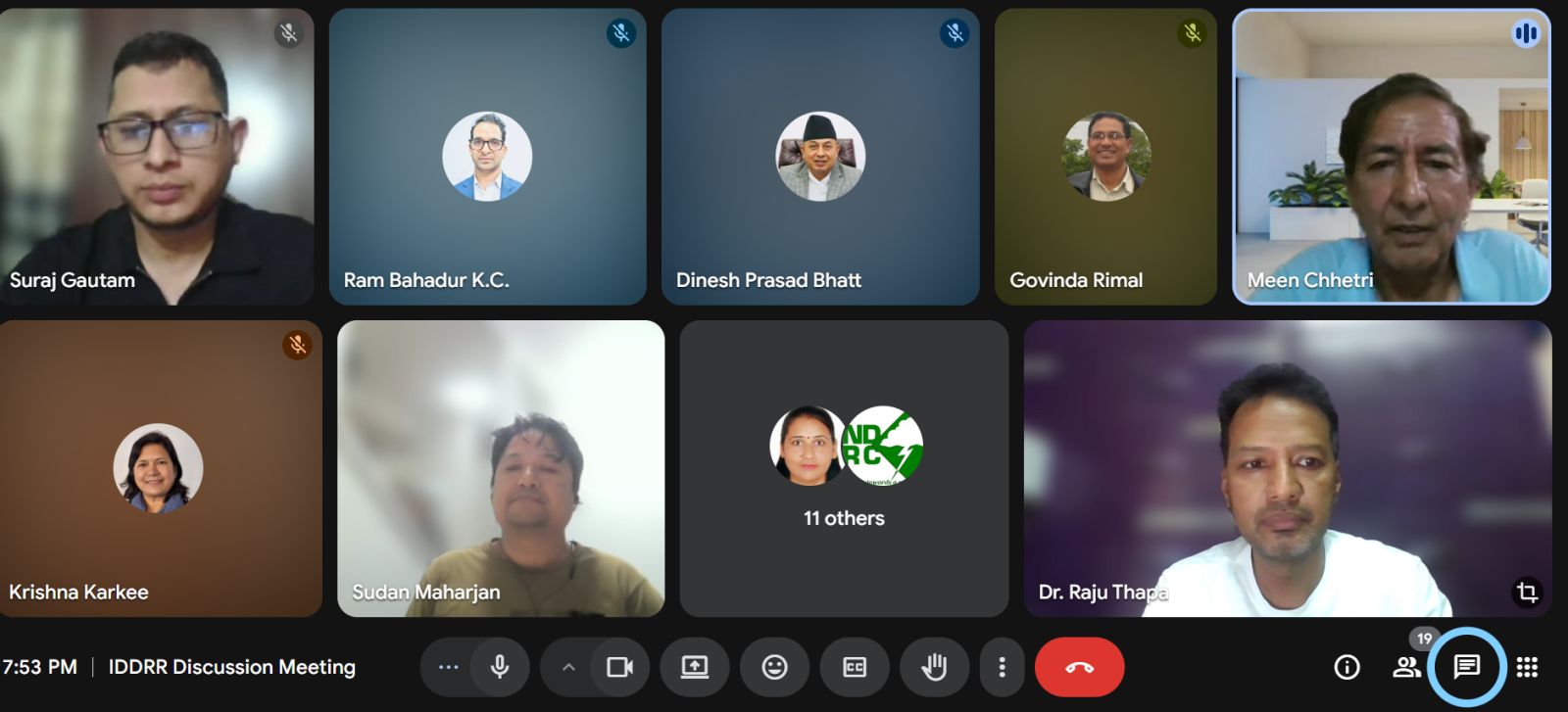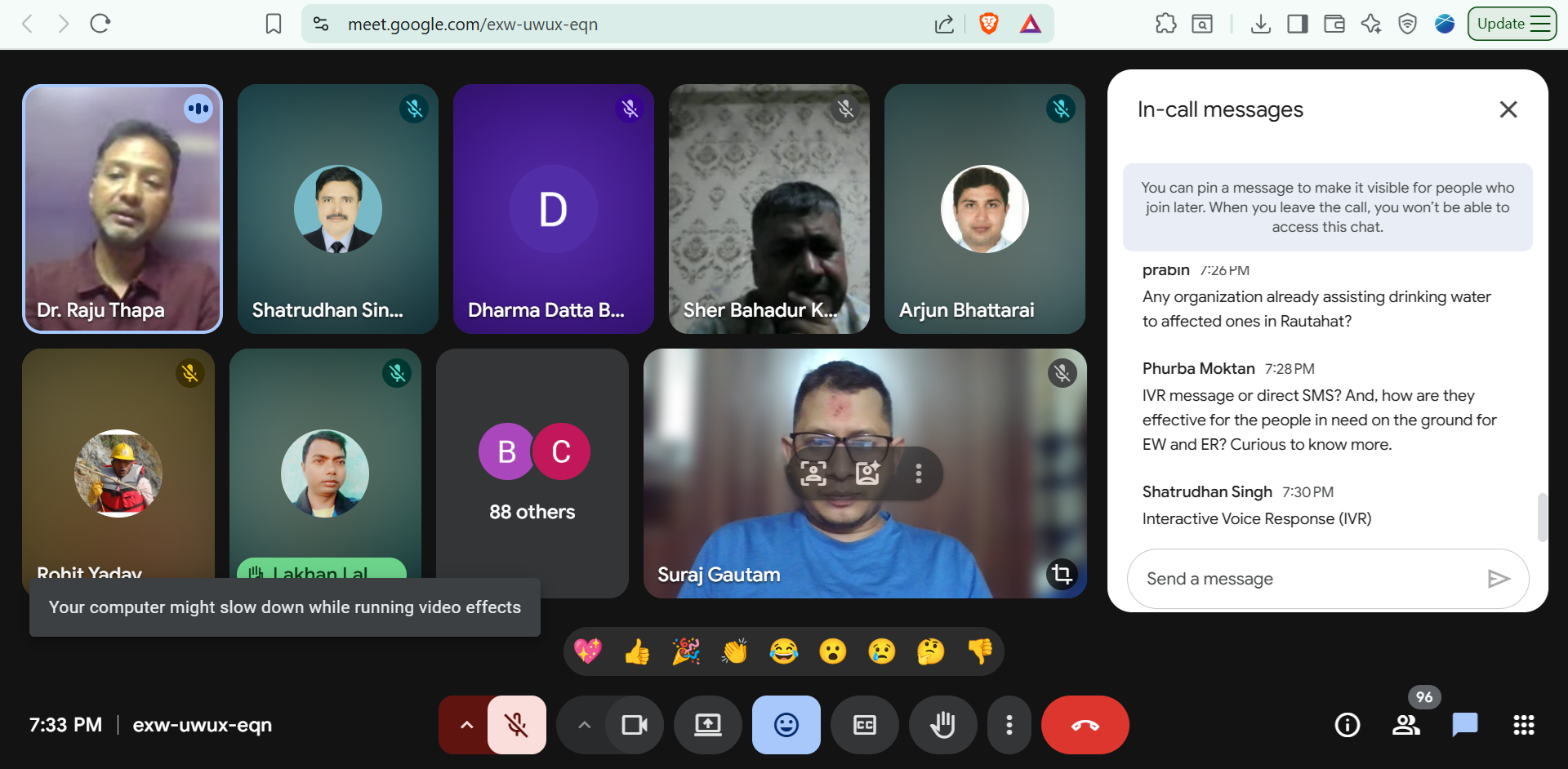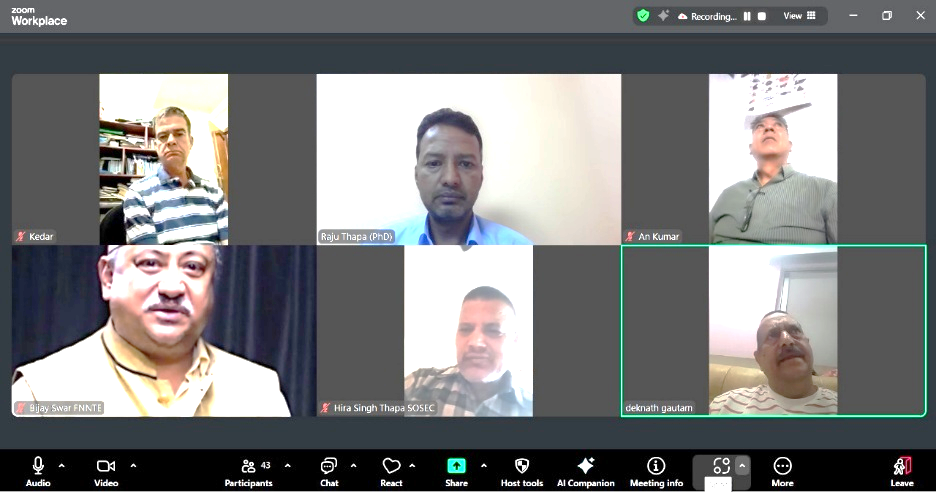Post Earthquake Discussion at West Rukum

DPNet in support of Welt Hunger Hilfe conducted a discussion program in West Rukum on March 25th, 2024. Most of the participants raise the concern about delay in second installment grant distribution. The provision of the first installment for temporary shelter construction, worth Rs. 25,000, initiated a wave of hope. However, the anticipation of a smooth process for receiving the second installment delayed due to the strict provision set on temporary shelter grant procedure, which ask beneficiaries to provide documents like land ownership certificates and other necessary documents. The District Disaster Management Committee (DDMC) sits on Rs. 500 million, unclaimed by municipalities, leaving those who had borrowed money at high interest rates to complete their houses in a debt trap.
The earthquake disrupted the routine of seasonal migration for livelihood, a common practice for the residents who traveled to India and other urban parts of Nepal. This disruption has not only severed a vital source of income but also intensified food scarcity and malnutrition issues within the community. Compounding these economic woes is the surge in locally brewed alcohol consumption, which has become a significant problem, escalating incidents of domestic violence. The cramped living conditions in temporary shelters have no escape room for women from abusive situations, highlighting an urgent need for humanitarian partners to prioritize protective measures.
Furthermore, the narrow confines of temporary shelters have led to an increase in fire accidents. Traditional indoor kitchens have been replaced by makeshift outdoor cooking spaces, closely situated to flammable materials. Another emerging threat is the rise in snake bites, attributed to warmer climates and a lack of a snake bite treatment center in the district. The fear of snake bites has traumatized the community, especially children, and led to drastic measures such as setting forest fires in a misguided attempt to eliminate snakes. Administrative and procedural delays have compounded the reconstruction efforts. The need for a streamlined process is evident as over a thousand files remain unopened at the Musikot Municipality office. In some cases, the choice of roof color mandated by municipal authorities has also become a point of contention, reflecting the micro-level challenges affecting the rebuilding process.
The situation is further complicated by the expectation of monsoon, which poses a threat to the already vulnerable temporary shelters. The opinion of beneficiaries on the inflated count of affected individuals, the challenges in coordinating efforts between the Chief District Officer (CDO) and DDMC members, and frequent changes in local government staff have all contributed to a sluggish reconstruction pace. Moreover, the one-door policy, intended to streamline aid distribution, has faced criticism for its inefficiency. Humanitarian efforts have concentrated in accessible areas, leaving those in remote locations underserved. The use of social security allowances, delays due to the appointment of Chief Administration Officers (CAO), and the identification of the most vulnerable households for support highlight the issues troubling the recovery process. The political influence on the inflation of beneficiary numbers, geological challenges like land fissure due to earthquake in construction, and the disruption of spring water sources, add layers to the already complex situation.
The community's resilience is tested further by the loss of livelihoods, agricultural products, and the erasure of traditional practices. The support from NGOs and INGOs, while helpful, has not fully addressed the spectrum of needs, including child malnutrition, the management of orphan children, and the adherence to minimum humanitarian standards in reconstruction efforts. The reliance on round stones and mud for building, without engineering input, has raised concerns about the future earthquake resilience of new structures.
Reflecting on these observations and interactions, it's clear that the path to recovery in West Rukum is fraught with challenges that extend beyond the physical rebuilding of homes. The deep-seated issues of debt, disrupted livelihoods, increased domestic violence, and administrative hurdles paint a complex picture of post-disaster recovery. As the community braces for the monsoon season, the urgency for coordinated, comprehensive, and compassionate responses from all stakeholders – government bodies, humanitarian partners, and the community itself – has never been more critical. The journey towards rebuilding West Rukum after the earthquake is not just about reconstructing homes but restoring the fabric of the community and ensuring resilience against future calamities.











